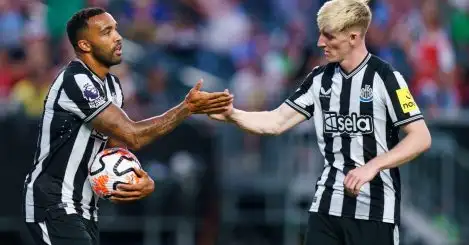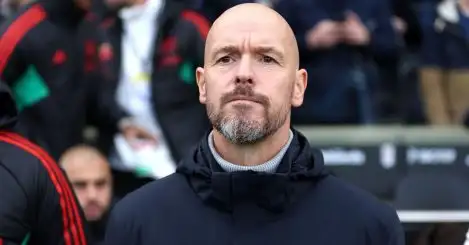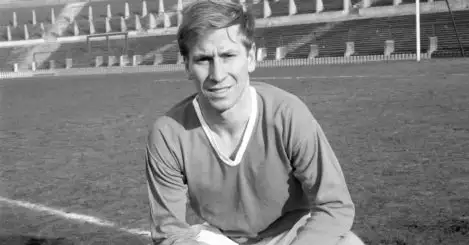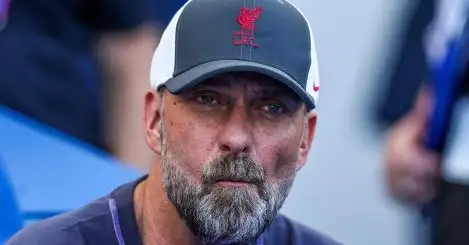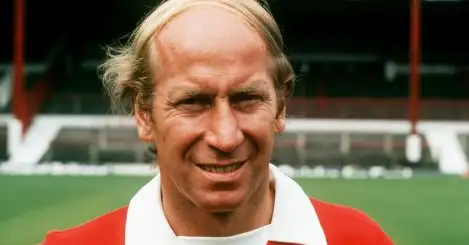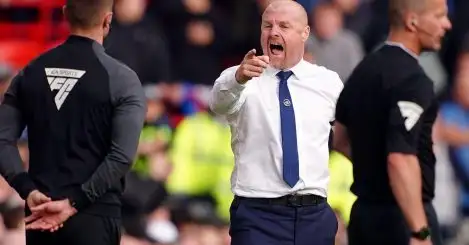Sir Bobby Charlton was Mr Manchester United; there will never be another like him
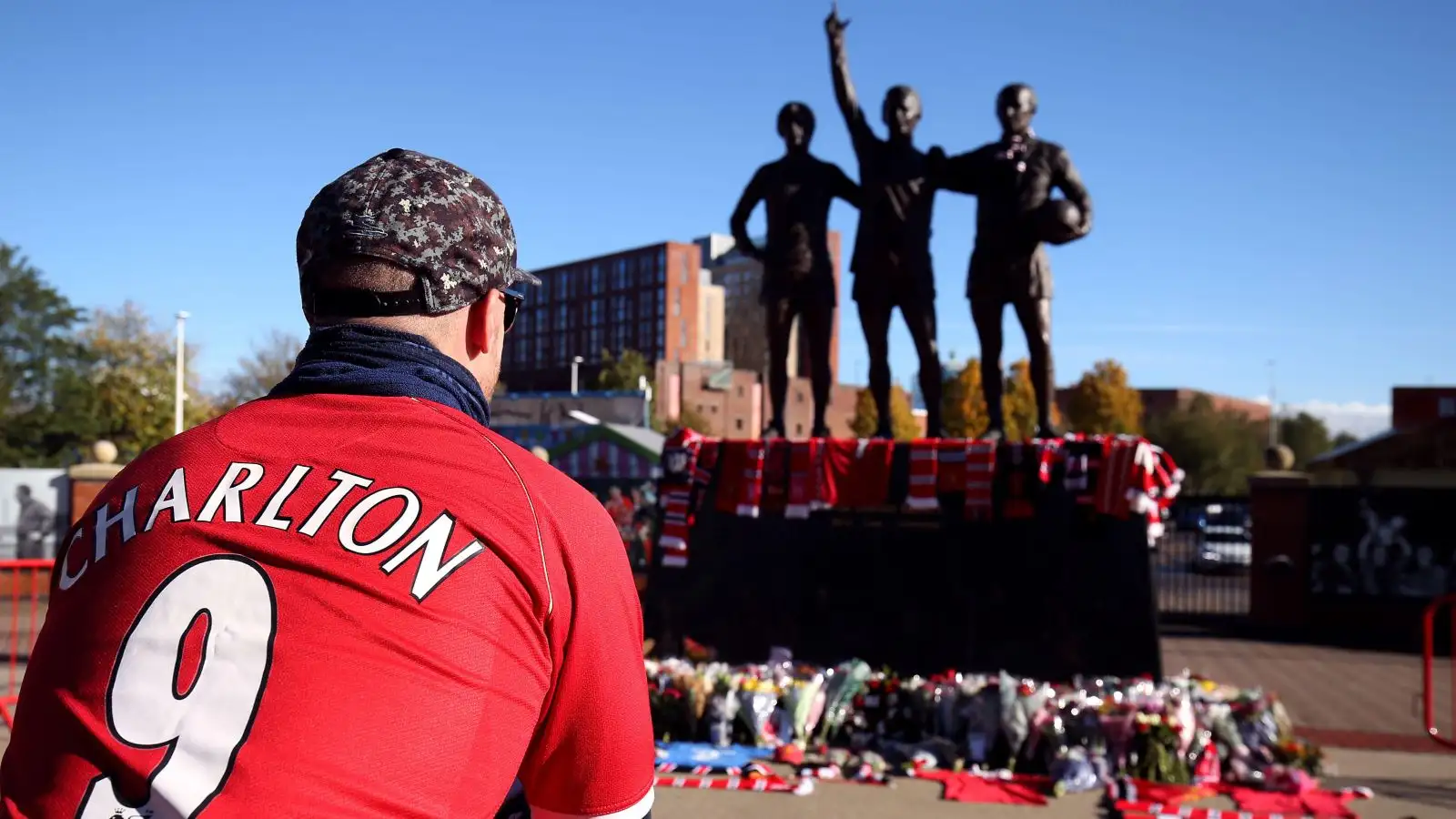
The death of Sir Bobby Charlton at the age of 86 saw the passing of both a great player and a great man, a true giant of the sport in every sense of the word. His life and career are undoubtedly the greatest story ever told in English football.
Born in Northumberland and into footballing royalty, it was clear from a young age that Charlton would follow in the footsteps of his mother’s cousin, Jackie Milburn, and become a professional footballer.
Not for Newcastle United though, where Milburn was the club’s all-time leading scorer until Alan Shearer broke his record in 2006, but for Manchester United, having been spotted by famous club scout and trainer Joe Armstrong in the early 1950s.
He joined a United on the rise, with Sir Matt Busby having built the modern iteration of the club following the end of World War II. He would soon collect his first medals: three Youth Cups as Busby’s youth revolution was moving into full flow.
Military service was still mandatory in the years after, with Charlton doing his duty alongside teammate and the club’s best player, Duncan Edwards.
He was in the second wave of the fabled Busby Babes, following Edwards, Liam Whelan, David Pegg and co, into the first team, making his debut in October 1956. By the end of that season, he had firmly established himself in the side and had the first of his three league titles as United won a second consecutive Division One.

Manchester United’s Sir Bobby Charlton.
The 1957/58 season will always be remembered for the Munich Air disaster, one which took the lives of 23 passengers, eight of whom were United players (including the three mentioned above). Charlton miraculously escaped relatively unharmed physically, but the mental and emotional toil of such trauma would follow him for the rest of his life, as he himself admitted.
From the ashes of Munich, rose a new United, led by Charlton, who in the years after solidified himself as so much more than just a player. He became a symbol of hope, belief and Manchester United, someone who represented every value and principle the club stood for both on and off the pitch.
He was the standard-setter, the example to follow, the captain and in truth, Mr. Manchester United, as he was described by Gary Neville on Sunday evening.
Charlton returned to action for United less than a month after that dark February 6 day, and somehow helped United to a second straight FA Cup final, which they unsurprisingly lost given their first team had been decimated.
The first of 106 England caps also came in the aftermath of Munich, and Charlton made his first World Cup squad in the summer of 1958. Three more would follow, with no guessing required for which he is best remembered.
At just 21 years of age heading into the first post-Munich season and the start of a new era at United, it would be excusable if Charlton struggled in his new role as the best player on the team. Instead, he absolutely thrived, scoring 29 league goals as United, again somehow, came second in the league.
A depression would follow as the club went into a full rebuild, with Charlton one of the very few to still be at Old Trafford by the time the glory days came around again, starting with the 1963 FA Cup.
The opening goal in that 3-1 final win against Leicester City came via Denis Law, who had joined United the summer after a brief spell in Italy in Torino. Months after the final, a 17-year-old George Best would debut, paving the way for the formation of the Holy Trinity, arguably the greatest trio of talents to play for one team at the same time.
The three remain the only players to all win the Ballon d’Or trophy while playing together – Law in 1964, Charlton in 1966 and Best in 1968. Their legacy at United is enshrined in the famous statue outside the ground, the only one ever built for any player(s).
The mid-to-late 1960s would represent the greatest period of Charlton’s career as both United and England reached the mountain top.
League titles with United came in 1964/65 and 1966/67, as they regained their place at the pinnacle of English football, which were sandwiched by 1966 and all that.
Charlton was central to England’s World Cup win, scoring in the opening game against Mexico before netting both in the 2-1 semi-final victory against Eusebio’s much-feared Portugal side.
He didn’t score in the final against West Germany at Wembley as the West Ham boys took over, but did it matter? He had won the World Cup with his brother, Jack, one of only two sibling pairs to ever do so. It played a large part in his Ballon d’Or victory and remains the greatest moment in Three Lions history, and their only ever trophy.

He was a champion of the world with England but for United, it was all about Europe. Busby had been a pioneer in defying the FA and entering Europe a decade before, but his odyssey had not yet landed him and his side the famous trophy, entirely due to the events of 1958 when United were on the cusp of greatness.
What happened in May 1968 would be deemed unrealistic if handed over to a movie director, but it showed the magic of United and Charlton’s life and career.
At Wembley once more, Charlton defeated Eusebio again (this time with Benfica), scoring twice in a 4-1 win after extra time. 10 years on from Munich, United finally lifted the European Cup with Charlton as captain and Busby as manager. Two survivors and the two men who laid the foundations of the club.
He remains the only English player to win all three major honours in the game: World Cup, European Cup and the Ballon d’Or, which is unlikely to be broken any time soon.
The 1968 win represented the peak of both men’s club careers and United’s as an institution, but a major decline followed as Charlton aged and Busby retired, not once but twice in the next few years.
Charlton left in 1973, lamenting the fall in standards at the club, and United would reach their nadir just a year later, being relegated to Division Two six years after their greatest day.
While he had left as a player, he would return 11 years later as a club director after a brief stint in management with Preston North End and Wigan (in a caretaker role).
From 1984 until he stepped away from duties following his dementia diagnosis, which was made public in November 2020 (sadly like so many of his playing generation), Charlton continued to represent the club as he did in his playing days, being a living and breathing embodiment of the club.
He went to home and away games, often joined the team in the dressing room after big wins and most importantly, was the no.1 supporter of Sir Alex Ferguson in the early days when there were calls for him to be sacked.
Charlton’s belief in Fergie paid off spectacularly, and United once again climbed to the top of European football in 1999 and 2008. In ’99 (which would have been Busby’s 90th birthday, just to add to the mystique around the club) he was in the stands, while in ’08, he brilliantly led the team to collect the trophy he had lifted 40 years before.
It helped define what Charlton represented for United, a link from the past to the present, a survivor of Munich walking up the stairs 50 years after that fateful day, after Ryan Giggs broke his 35-year-record for most appearances for the club. Couldn’t write it.
That was the first of his three long-standing records to be broken in the years to come, with Wayne Rooney usurping him as leading scorer for both United and England (Harry Kane has since topped it) – Charlton scored 49 and 249 for club and country, and he wasn’t even a striker.
His status in the game was further cemented in 1994 as he became a knight of the realm, and his already-all-time status at United was supplemented in 2016 with the renaming of the Old Trafford South stand in his honour.
His death signals the end of an era in both United and football, as he was the last living member of the 1958 Busby Babes. He is now reunited with all of his old friends and his big brother Jack.
It is only fitting that on a week of tributes and honouring the great man, United play a European Cup game and the Manchester derby, both at Old Trafford, with thousands of fans packed into the stand named after him and the stadium he helped make famous.
As the Aston Villa fans brilliantly sang on Sunday afternoon, there’s only one Bobby Charlton. There won’t be another like him.
